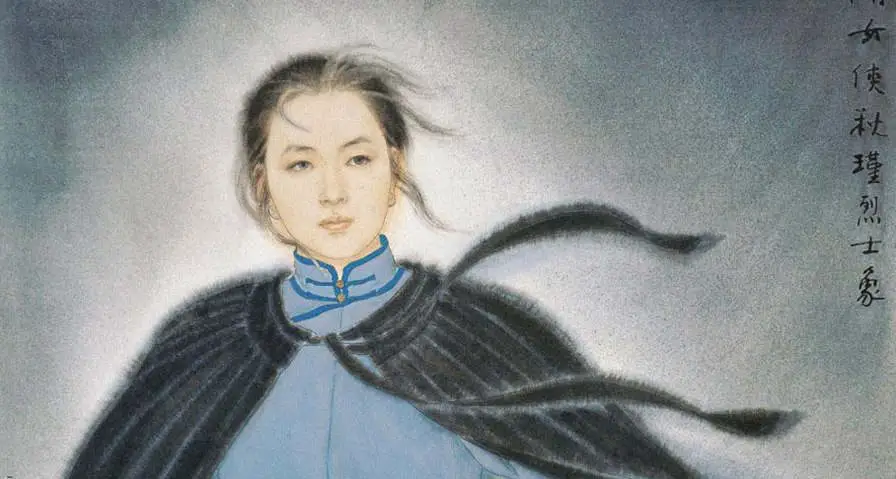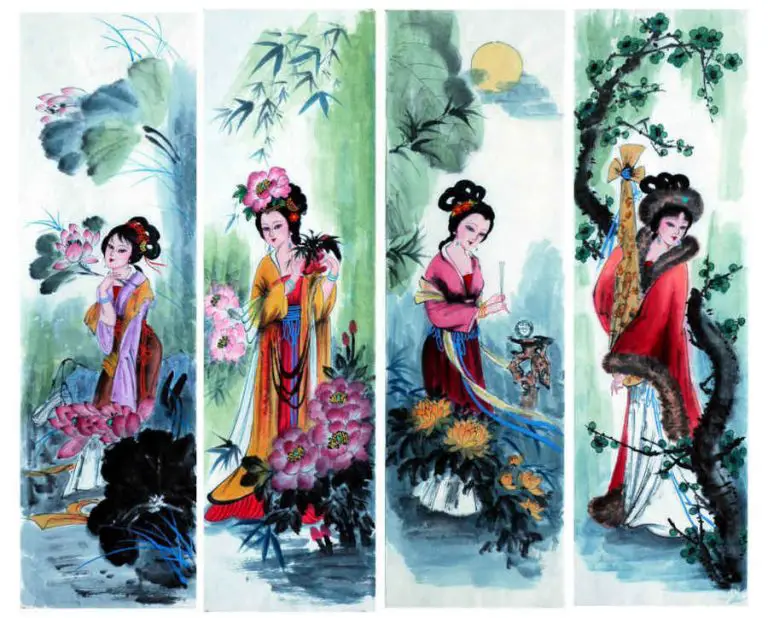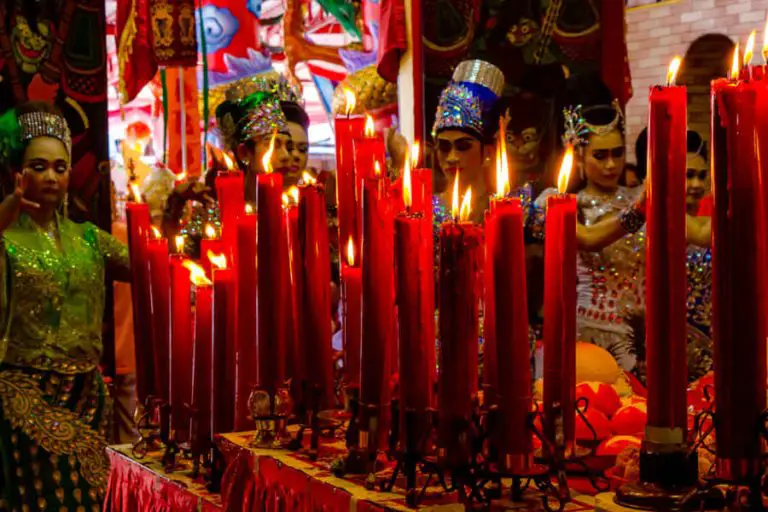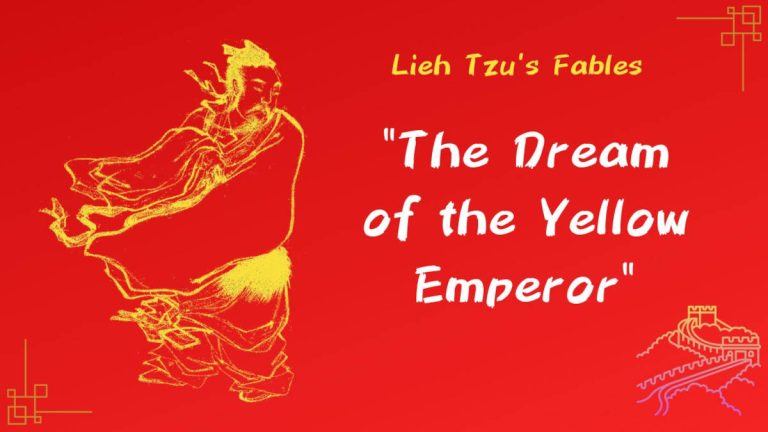Qiu Jin was born in 1875, during the final decades of the Qing dynasty—a time of deep unrest in China. Foreign interference, internal rebellions, and the decline of imperial rule created a nation in crisis. This turbulent environment became the backdrop of her formative years, quietly shaping her awareness of injustice and resistance.
She came from a moderately wealthy family in Fujian province. Her father was a Qing official, and their home reflected traditional Confucian values. It also valued education, a privilege not commonly extended to girls. Yet Qiu Jin, surrounded by classical texts and poetry, was given the opportunity to study. She embraced this gift, developing an early love for literature and a deep appreciation for Chinese history and philosophy.
As she grew older, Qiu Jin became increasingly aware of the rigid limitations placed on women. Practices like foot-binding, the expectation of obedience, and restricted access to education weighed heavily on her. These cultural norms clashed with her emerging sense of identity. She had ambitions beyond marriage and motherhood, yet society offered her no outlet for them.
This tension between expectation and desire ignited a spark of rebellion. In her teenage years, she began writing poetry to express her inner turmoil. Her verses often hinted at longing, confinement, and the dream of liberation. She spoke of broken chains and soaring birds—clear metaphors for freedom and resistance.
The defining blow to her sense of autonomy came when she was forced into an arranged marriage with an older man. The union was stifling and unfulfilling, confirming her belief that traditional roles were a form of imprisonment. But rather than accept her fate, Qiu Jin began to look for ways to fight back. Her personal pain became a source of power.
Long before she joined revolutionary movements or traveled abroad, Qiu Jin’s rebellion began quietly—within the walls of her own home. Her early life was not just a prelude to activism, but the very soil in which her radical ideas first took root.
Breaking Boundaries in a Man’s World
In 1904, Qiu Jin made a bold and life-changing decision—she left her home, her husband, and her children to study in Japan. At the time, this was almost unthinkable for a Chinese woman. But for Qiu Jin, it was an escape from the suffocating expectations of a patriarchal society and a step toward a larger purpose. Japan had become a haven for Chinese intellectuals and reformers, and she was determined to join them.
Her time in Japan opened new doors. She enrolled at the Tokyo Women’s Practical School, where she studied physical education, Japanese, and other subjects traditionally closed off to women in China. But the classrooms were only part of her education. It was in political circles and underground gatherings where her revolutionary spirit sharpened. She met like-minded activists who believed in overthrowing the Qing dynasty and rebuilding China on modern, egalitarian principles.
The exposure to global ideas, particularly those rooted in feminism and nationalism, transformed her perspective. She studied Western feminist thinkers and observed how Japanese women were starting to assert their own rights. Qiu Jin began to connect the oppression of women with the broader failures of the Chinese political system. In her eyes, the liberation of women and the liberation of the nation were deeply intertwined. She wrote fiercely about the injustice women faced and argued that women’s emancipation was essential for China’s survival and progress.
During this period, Qiu Jin joined the Restoration Society (Guangfuhui), a revolutionary organization working toward the fall of the Qing government. She didn’t just participate—she rose quickly through the ranks, proving herself as a passionate and capable leader. Her speeches, writings, and presence electrified her peers. She began wearing men’s clothing, practiced martial arts, and carried weapons—not just as symbols, but as tools for resistance. Her image challenged everything people thought a woman could be.
Japan gave Qiu Jin more than just an education—it gave her a mission. She returned to China not only with knowledge, but with conviction. Her dream was no longer personal freedom, but national transformation. And she was ready to fight for it, no matter the cost.
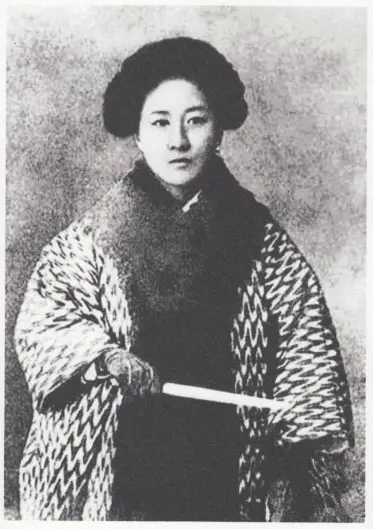
The Pen and the Sword: Qiu Jin’s Activism
When Qiu Jin returned to China from Japan, she did not return quietly. Armed with radical ideas and a fierce sense of purpose, she immediately began using her voice to challenge the oppressive systems she had long rejected. Writing became one of her most powerful weapons. Through poetry, essays, and editorials, she gave language to a revolution that had, for too long, been silent—especially for women.
She founded and edited radical journals like China Women’s News and Vernacular Journal, where she boldly addressed women’s issues that few dared to speak about. She tackled topics such as foot-binding, child marriage, lack of education, and the subjugation of women within Confucian traditions. Her articles called on women to rise up, get educated, and take control of their lives. She didn’t just critique society—she offered a vision of what could be, writing in a tone that was fiery, poetic, and deeply persuasive.
Qiu Jin also delivered powerful speeches at schools and public forums, where she urged women to pursue education and reject the roles that had been forced upon them. She believed that education was the first step toward independence, and she made it her mission to inspire a new generation of Chinese women to think critically and act courageously. In 1907, she became the head of the Datong Girls’ School in Shaoxing, which she used not only as an educational institution but also as a front for revolutionary training.
Her activism wasn’t limited to words. Qiu Jin was deeply involved in revolutionary movements aimed at toppling the Qing dynasty. She joined secret societies like the Guangfuhui (Restoration Society), which worked to bring about a democratic republic. She helped organize uprisings and train rebels, often putting her own life at risk. Her home and school doubled as safe houses and meeting spots for conspirators. She was no longer just writing about change—she was leading it.
Qiu Jin’s activism was a rare blend of intellectual firepower and real-world action. She believed in the power of the written word, but she also knew that lasting change required more than just ideas—it needed bravery, unity, and sacrifice. Her life was becoming the embodiment of everything she preached: a relentless fight for justice, no matter the cost.
Related reading: The Role of Women in Ancient China: A Journey Through Time – Opens in new tab
A Voice for the Voiceless: Feminism in Action
Qiu Jin was one of the earliest and most outspoken Chinese feminists to link the personal suffering of women to the larger struggle for national reform. She understood that a country could not be strong if half its population was silenced. Her feminism wasn’t a side note to her revolutionary goals—it was central to them.
She spoke out relentlessly against the brutal tradition of foot-binding. This painful and disfiguring practice, which was seen as a symbol of beauty and obedience, left women physically crippled and socially limited. Qiu Jin saw it as a tool of control. She didn’t just criticize it—she used her platform to shame it, calling it a crime against the body and spirit of women. She demanded an end to the custom, pushing women to unbind their feet and reclaim their right to walk freely in the world.
Forced marriages were another target of her fury. Having suffered through her own unhappy marriage, Qiu Jin was deeply committed to freeing women from this oppressive institution. She condemned arranged marriages as cages that trapped women without consent or love. Her writings encouraged women to seek out partnerships based on equality—or to reject marriage entirely if it meant sacrificing their freedom.
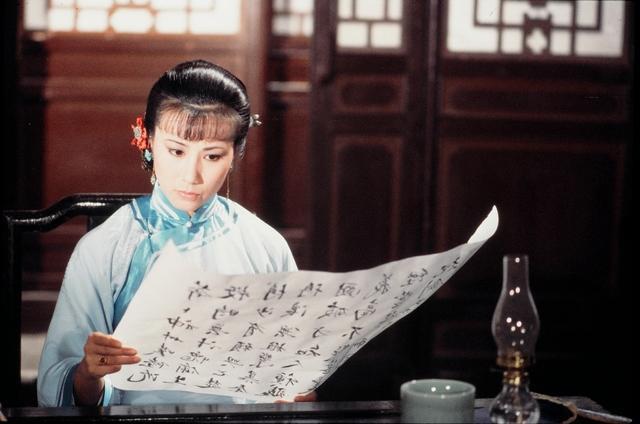
Qiu Jin believed that true liberation started with education. She championed the idea that women must be educated not only to improve their own lives but to strengthen the nation. She opened doors for girls to learn reading, writing, physical education, and political thought—subjects that had been reserved for men. In her school, she encouraged girls to think critically and live boldly. Education, to her, was not just about books—it was about awakening.
She also advocated for women’s right to work. At a time when most women were expected to stay at home, Qiu Jin promoted employment as a path to independence. She argued that women should not be financially or socially dependent on men. They had minds, skills, and voices—and those should be used in service of both personal fulfillment and social progress.
Perhaps her most powerful legacy was the inspiration she gave to others. Qiu Jin wasn’t just a symbol of rebellion; she was a call to action. She encouraged women to fight for their freedom, to organize, to resist. Her life proved that women could be leaders, warriors, writers, and visionaries. She spoke for the voiceless, but she also taught them how to speak for themselves.
The Final Stand: Qiu Jin’s Martyrdom
In 1907, Qiu Jin’s revolutionary work reached a critical turning point. She was helping to lead a planned uprising in Anhui province aimed at overthrowing the Qing dynasty. Working closely with fellow revolutionaries, including her cousin Xu Xilin, she used her school as a base for organizing, recruiting fighters, and storing weapons. But before the uprising could begin, authorities discovered the plot. Xu Xilin was arrested after a failed assassination attempt on a local official, and Qiu Jin’s involvement quickly came under suspicion.
Just days later, Qiu Jin was arrested at her school in Shaoxing. The crackdown was swift and brutal. She was interrogated, tortured, and pressured to confess the names of her comrades. Despite intense physical abuse, she refused to betray anyone. She remained fiercely loyal to the cause, even in the face of death. Her silence under torture was a powerful act of resistance that earned the admiration of many and the hatred of her enemies.
Only two days after her arrest, she was executed by decapitation at the age of 31. The swiftness of her death shocked many, especially given her prominence and noble background. But the Qing government hoped that eliminating her quickly would crush the revolutionary spirit. Instead, it had the opposite effect.
Qiu Jin’s death became a rallying cry for the revolution. She was immediately hailed as a martyr, and her bravery spread through underground networks and public memorials. Her poems, speeches, and writings were reprinted and circulated, turning her into a symbol of courage and conviction. One of her most famous lines, written before her execution, read: “Autumn wind and rain fill the sorrowful tower”—a haunting farewell that came to define her legacy.
Her martyrdom inspired countless others to join the fight. Just a few years later, the 1911 revolution succeeded in ending the Qing dynasty and establishing the Republic of China. Though she did not live to see that day, Qiu Jin’s sacrifice helped make it possible. She had shown that resistance could come not only from the battlefield, but from the classroom, the pen, and the unshakable will of a woman who refused to be silent.
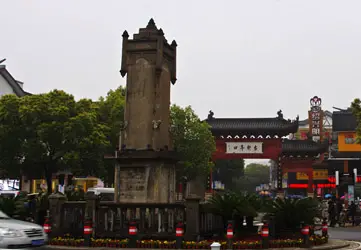
The Role of Poetry in Qiu Jin’s Revolutionary Message
Qiu Jin’s poetry was not merely an artistic expression but a vital tool in her revolutionary efforts. She used her poems to communicate powerful social critiques and inspire her readers. Through her poetry, she voiced the anger and frustration of women who had been historically silenced, urging them to reject the passivity imposed upon them by society.
Qiu Jin’s use of poetry also demonstrated her understanding of literature’s power to galvanize change. She recognized that written words could be a weapon, just as much as swords or guns. In this regard, her literary contributions were revolutionary in their own right.
In a time when women were not encouraged to write, let alone to express radical thoughts, her poetry gave women both a voice and a platform. It bridged the gap between intellectual revolution and social reform, making her a pivotal figure in Chinese literature and feminist history.
Related reading: The Most Powerful Women in Ancient China – Opens in new tab
The Symbolism of Qiu Jin’s Martial Arts Practice
Another fascinating aspect of Qiu Jin’s revolutionary identity was her embrace of martial arts. At a time when women were generally expected to remain delicate and passive, Qiu Jin defied these norms by practicing martial arts and carrying weapons.
Her involvement in physical training wasn’t just for self-defense—it was a symbolic act. Qiu Jin wore men’s clothing and wielded weapons as expressions of her belief in personal agency and strength.
Her martial arts practice allowed her to embody both intellectual and physical rebellion. In a society where women were traditionally seen as frail and submissive, Qiu Jin’s strength was a bold statement of her refusal to conform to those expectations.
By integrating martial arts into her revolutionary identity, she drew a direct parallel between the liberation of women and the liberation of the nation—both of which required strength, courage, and the willingness to fight back against oppression.

The Legacy Lives On
Qiu Jin’s legacy lives on as one of China’s most enduring symbols of feminist courage and revolutionary sacrifice. She is remembered not only for what she said and did, but for what she represented—a woman who defied an entire system and paid the ultimate price for her beliefs. Over time, her image has evolved from outlaw to national heroine, firmly woven into the fabric of China’s modern history.
Today, Qiu Jin is widely celebrated as a feminist icon. Her fearless stance against gender oppression laid the groundwork for generations of Chinese women to fight for their rights. She spoke a truth that had long been buried—that women were not just daughters, wives, or mothers, but thinkers, leaders, and change-makers. In a society where silence had been demanded, she gave women a voice.
Modern Chinese feminism continues to draw inspiration from Qiu Jin’s bold vision. Her calls for education, equal opportunity, and personal agency still resonate in contemporary struggles for gender equality. Activists often reference her work to remind the world that feminism in China did not begin in the West—it was born on Chinese soil, led by women like Qiu Jin who understood the power of their own stories.
Her memory is honored across the country. Museums dedicated to her life stand in Shaoxing and Hangzhou, showcasing her writings, clothing, and revolutionary artifacts. Statues of Qiu Jin depict her in traditional dress with a sword in hand—an image that perfectly captures her dual power as both a poet and a warrior. Her former residence is preserved as a national historical site, where visitors walk through the same halls where she once plotted revolution and penned her fiery verses.
Her poetry is still taught in schools, and her life is the subject of films, books, and plays. Every detail of her story—her strength, her sacrifice, her unshakable convictions—continues to inspire both admiration and reflection. Qiu Jin may have lived in a different time, but her legacy reaches into the present, reminding each generation that change begins with a voice that refuses to be silenced.
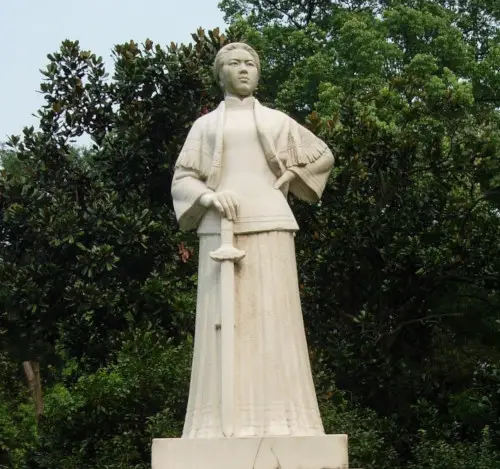
Lessons from Qiu Jin for Today’s World
Qiu Jin’s life is a timeless lesson in courage, conviction, and the power of standing up for what you believe in—even when the world is against you. She didn’t wait for permission to challenge the status quo. She saw injustice and acted, driven by a deep belief that change was not only necessary, but possible. Her story teaches us that real courage isn’t the absence of fear—it’s the willingness to fight in spite of it.
In today’s world, where gender inequality, censorship, and political repression still exist, Qiu Jin’s ideas remain strikingly relevant. Her calls for education, freedom of speech, and equal rights echo loudly in current movements for social justice. She understood that silence enables oppression and that meaningful change requires both voice and action. Her belief in linking personal empowerment with collective transformation is a message that continues to resonate around the globe.
Her life also reminds us that activism takes many forms. Qiu Jin fought with words, with organizing, and with leadership. She embraced both intellect and action, showing that revolutions aren’t built only on violence—they’re built on ideas, on solidarity, and on the unbreakable will of individuals who refuse to back down.
Today, her legacy lives on in young people—especially women—who are finding their own voices and causes. From classrooms to protest lines, her story is told as an example of what one person can do when they speak out with truth and passion. She has become more than a historical figure; she is a symbol of what it means to live boldly and die with purpose.
Qiu Jin continues to inspire new generations to question, to dream, and to rise. Her life is a powerful reminder that even in the face of overwhelming odds, change always begins with someone brave enough to believe in it.
Check out our “Free Chinese Literature Library”. We have compiled some great free resources, about Chinese literature, for your research.
Stay in Touch
 Join our newsletter by using the forms on this website or click here!
Join our newsletter by using the forms on this website or click here! Follow us on Google News
Follow us on Google News Follow us on Facebook
Follow us on Facebook
Featured image by Jiang Caiping, Qiu Jin, 1992, ink on paper, 290 x 290 cm, National Art Museum of China (NAMOC)

